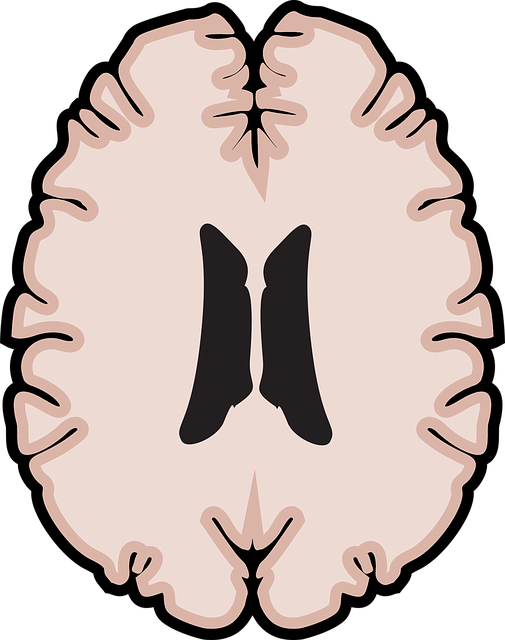Castle Rock Chronic Illness Therapy prioritizes understanding trauma to offer effective support. Adverse life events cause lasting psychological scars, manifest as anxiety, depression, flashbacks, and dissociation. They provide tailored help through specialized treatments like CBT and EMDR, practical workshops, mental wellness journaling, and individual/group sessions. Their evidence-based approach combines therapy with social skills training and public awareness initiatives to enhance emotional regulation, build resilience, and promote holistic healing in a supportive environment.
Trauma is a pervasive issue with profound implications, affecting individuals across diverse demographics. In response, trauma support services have emerged as vital resources, offering comprehensive care tailored to address complex needs. This article explores these services, focusing on the foundational understanding of trauma and its impact. We delve into the specific role of Castle Rock Chronic Illness Therapy in facilitating trauma recovery and uncover effective strategies for optimal support.
- Understanding Trauma and Its Impact: A Foundation for Support Services
- The Role of Castle Rock Chronic Illness Therapy in Trauma Recovery
- Strategies for Effective Trauma Support: Ensuring Comprehensive Care
Understanding Trauma and Its Impact: A Foundation for Support Services

Understanding trauma is a fundamental step in establishing effective support services for individuals facing its profound impact. Trauma, often resulting from adverse life events, can lead to long-lasting psychological and emotional scars. It affects people across diverse demographics, including those with chronic illnesses managed at Castle Rock Chronic Illness Therapy. The experience of trauma can manifest in various ways, such as anxiety, depression, flashbacks, and dissociation, significantly influencing an individual’s daily functioning and overall well-being.
By recognizing the multifaceted nature of trauma, support services can be tailored to address specific needs. This includes offering specialized treatments like therapy, alongside practical initiatives such as Stress Management Workshops Organization and Mental Wellness Journaling Exercise Guidance. These approaches aim to equip individuals with healthy coping mechanisms, enhance emotional regulation, and promote resilience in navigating traumatic experiences.
The Role of Castle Rock Chronic Illness Therapy in Trauma Recovery

Castle Rock Chronic Illness Therapy plays a pivotal role in trauma recovery, offering specialized services tailored to address complex emotional wounds. Their experienced therapists employ evidence-based approaches, such as cognitive behavioral therapy (CBT), to help individuals process traumatic memories and develop healthy coping mechanisms. By fostering a safe and supportive environment, Castle Rock Chronic Illness Therapy enables clients to cultivate anxiety relief, promote positive thinking, and embark on the journey of self-care routine development for better mental health.
Through individual and group therapy sessions, clients gain valuable tools to navigate the challenges associated with trauma. The therapists at Castle Rock Chronic Illness Therapy guide individuals through a process of understanding their experiences, processing emotions, and rebuilding resilience. By integrating evidence-based practices with empathy and compassion, they facilitate profound healing, empowering individuals to reclaim their lives and cultivate a sense of well-being.
Strategies for Effective Trauma Support: Ensuring Comprehensive Care

Trauma support services must be multifaceted to effectively address the complex needs of individuals dealing with traumatic experiences. Strategies for comprehensive care involve integrating various therapeutic approaches, such as cognitive behavioral therapy (CBT), eye movement desensitization and reprocessing (EMDR), and mindfulness techniques. These methods help clients process and manage their trauma responses, fostering emotional regulation and resilience.
At Castle Rock Chronic Illness Therapy, we recognize that public awareness campaigns play a crucial role in destigmatizing trauma and encouraging individuals to seek support. Additionally, social skills training can empower survivors to rebuild connections and reclaim their lives. By combining these strategies with tailored interventions, our services aim to provide anxiety relief and promote holistic healing for every client, catering to diverse needs within a supportive environment.
In conclusion, trauma support services play a vital role in helping individuals heal and recover. By understanding the profound impact of trauma, we can develop comprehensive strategies, such as those offered by Castle Rock Chronic Illness Therapy, to facilitate healing. Through effective approaches that address the whole person—mind, body, and spirit—we ensure that those affected by trauma receive the care they need to rebuild their lives and regain a sense of safety and well-being.












